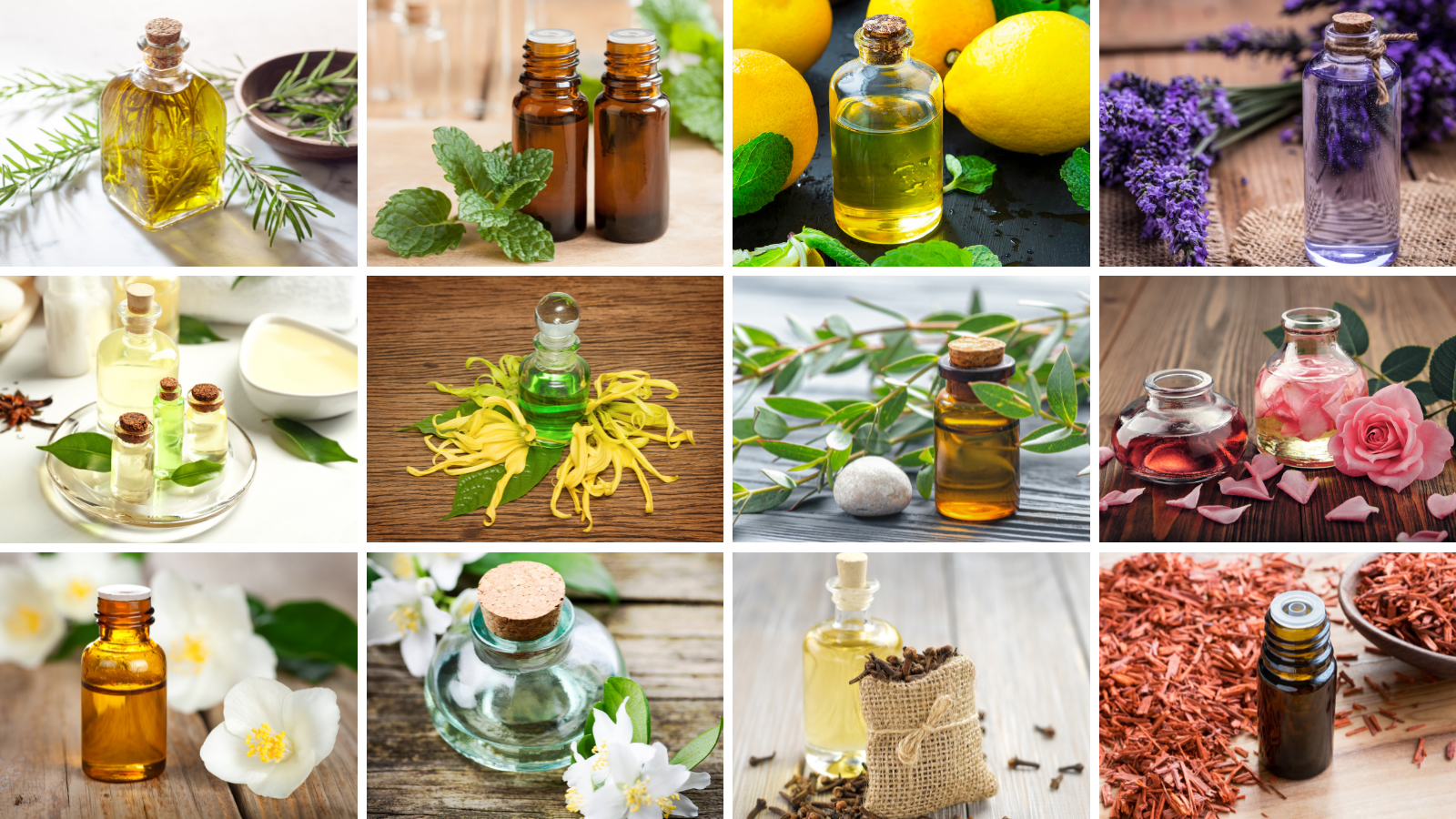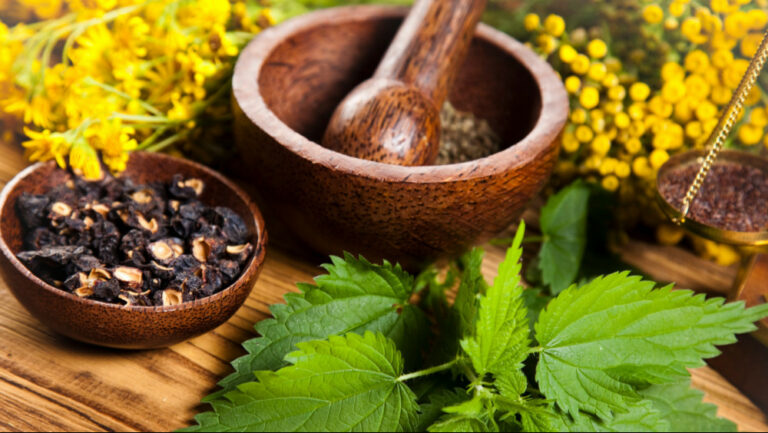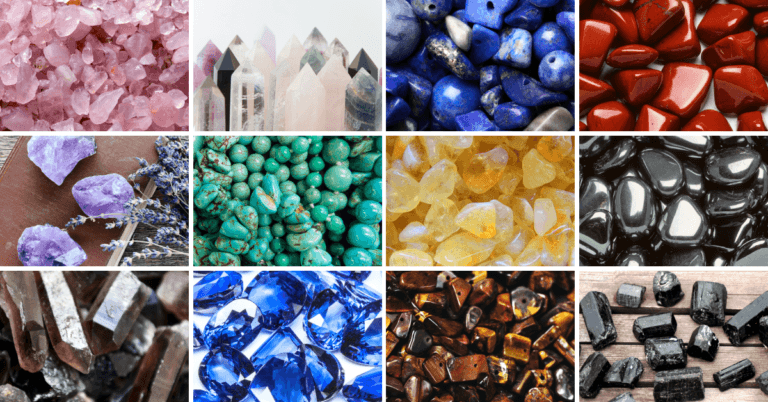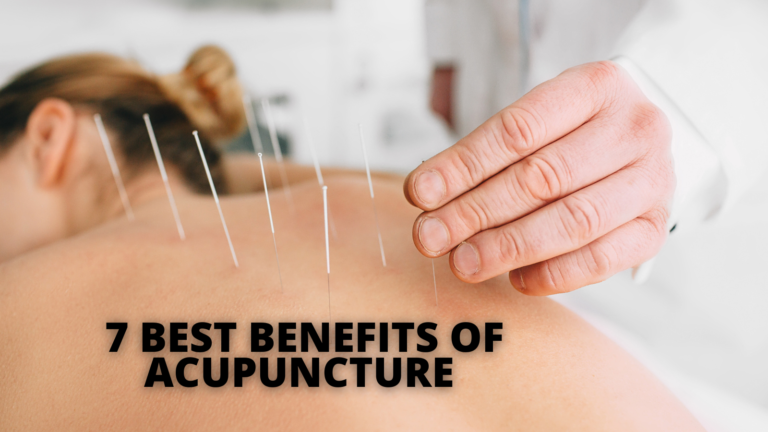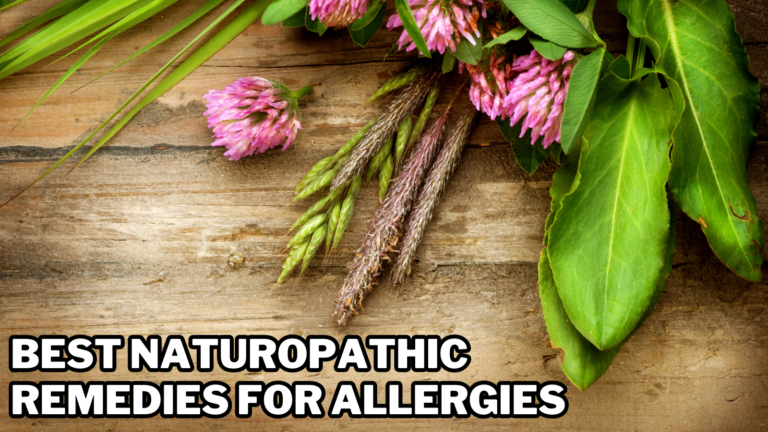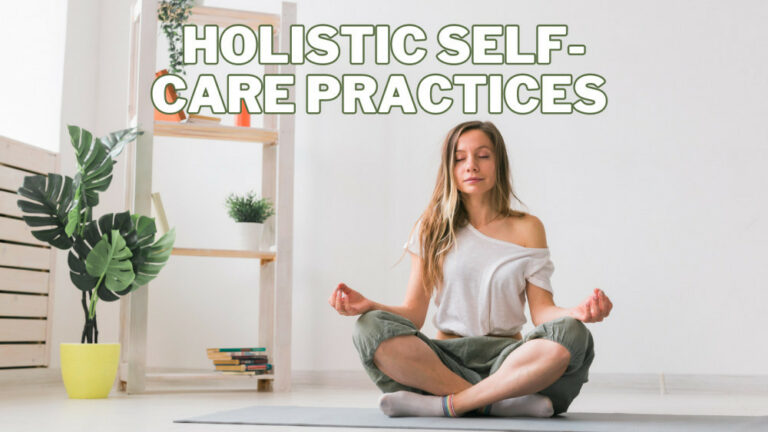15 Best Essential Oils For Natural Healing
15 Best Essential Oils For Natural Healing
These top 15 essential oils have been used medicinally for thousands of years, making them so powerful in their capacity to support your body's natural healing processes.
These are some of the best essential oils for healing that you can find, and just one drop can offer fantastic health benefits!
What Are Essential Oils?
Compounds obtained from plants are called essential oils. The oils, or “essence,” of the plant are captured.
The distinctive essence of each essential oil is derived from various aromatic compounds. Mechanical methods, such as cold pressing or distillation (using steam and/or water), are used to obtain essential oils.
Following extraction, the aromatic chemicals are combined with carrier oils to produce a finished product ready for use.
How the oils are created matters because those obtained through chemical processes are not considered genuine essential oils.
1. Clove Essential Oil
Clove essential oil is one of the best essential oils for use as an antiseptic for oral infections and to kill various microbes to prevent disease.
Researchers from the University of Buenos Aires in Argentina looked at which bacteria are most susceptible to the potency of clove to assess its efficacy as an antimicrobial agent.
Clove has the strongest anti-microbial ability against E. coli and exerts significant control over Staph aureus and Pseudomonas aeruginosa. Their study shows these two bacteria frequently cause pneumonia and skin infections.
2. Rosemary Essential Oil
Many people are unaware of rosemary's amazing healing properties, including its capacity to restore normal blood pressure.
Rosemary has a history of promoting hair growth and has been used for centuries to enhance everything from memory and brain function to easing common aches and pains.
But most people don't consider rosemary as a potential substitute for blood pressure medication!
Researchers from the Universidad Complutense de Madrid used 32 hypotensive patients. In one of the few human studies examining this phenomenon, they monitored their dangerously low blood pressure for 72 weeks. The outcome?
Amazingly impressive! In addition to finding that a large majority of the volunteers' blood pressure could be brought to normal levels, it was also found that overall mental and physical quality of life was significantly enhanced, highlighting the extensive healing effects that this ancient oil has on health and wellness.
3. Eucalyptus Essential Oil
Eucalyptus is a powerful antibacterial, antispasmodic, and antiviral agent that the Aboriginal people of Australia use liberally for most illnesses in their villages. Eucalyptus essential oil, like clove essential oil, is highly effective against Staph infections.
Amazingly, a recent study from the VIT University in India demonstrated (in real-time) that Staph aureus completely lost viability after only 15 minutes of contact with eucalyptus oil!
It's also regarded as one of the best essential oils for respiratory distress, and most people enjoy the scent of it.
4. Sandalwood Essential Oil
Sandalwood is a mild bactericide that is more effective than most people realize and is frequently used to relieve and heal sore throats.
Sandalwood essential oil has the uncanny capacity to inhibit both tyrosinase and cholinesterase, which impacts several physiological processes, ranging from the production of melanin to normal nervous system function, according to research published last year.
The findings were so significant that researchers concluded: “[Sandalwood] essential oil has great potential for use in the treatment of Alzheimer's disease!”
5. Frankincense Essential Oil
Frankincense, one of the best essential oils, is finally receiving the recognition it deserves as one of the most effective healing agents on the planet after being overshadowed for many centuries by its part in the “Christmas Story.”
The MCF-7 and HS-1 cell lines, which are responsible for breast and other tumours, are mentioned explicitly in an article published in Oncology Letters late last year.
Frankincense essential oil has also been used with great success to address problems with the immune system, oral health, respiratory issues, stress, and anxiety.
Researchers have been able to confirm that Boswellic acids contain a potent ability to modify the immune system in addition to their traditional healing benefits of disease prevention and anti-inflammatory properties.
Controlling inflammation, which can have local or systemic effects, is also a component of having a more effective immune system.
6. Lavender Essential Oil
Lavender, well-known for its calming and soothing effects, is excellent for hastening the recovery process for burns, stings, cuts, and other wounds.
Its potent antioxidant content led Tunisian researchers to test its efficacy in treating diabetes and oxidative stress in rats. It's among the top essential oils for calming and relaxation but has other benefits.
A study published in Lipids in Health and Disease states that lavender essential oils “significantly protected against the increase of blood glucose as well as the decrease of antioxidant enzyme activities.”
Finally, researchers found that treatment with lavender essential oil increased antioxidant enzyme activities and reduced oxidative stress, which is known to cause heart disease and other health problems.
7. Tea Tree Essential Oil
One of the healing essential oils, tea tree has a long history of treating a variety of bacterial and fungal infections and acting as a local antiseptic for burns and cuts (including athlete's foot and jock itch).
Because of its incredible ability to kill microbes, this substance is known in the scientific community as “volatile,”
A study was done to see if it could harm your DNA. Be at ease—the thousands of years of use weren't wasted.
Researchers finally put an end to this criticism last year by demonstrating that tea tree oil is safe to use, according to a study published in The Journal of Ethnopharmacology.
In my opinion, if an essential oil is so potent that researchers need to investigate whether it can alter your genes, it must be doing something noteworthy! It is one of the best essential oils for general use!
Moreover, it goes beyond tea tree oil. These oils are all powerful healers that ought to be in every country's medicine cabinet.
8. Lemon Essential Oil
Numerous citrus essential oils are frequently used as insect repellents to revitalize dull, sluggish skin and stimulate lymphatic drainage.
However, lemon oil stands out because recent research has shown that it has beneficial antimicrobial and anti-inflammatory properties.
Lemon is now praised for its ability to fight food-borne pathogens and several other commonly used oils!
9. Rose Essential Oil
Rosa Damascena oil, or rose essential oil as it is known, is frequently used to lessen depressive, anxious, and stressful moods.
It can also aid in treating skin conditions like acne, dehydration, and early aging when used with the appropriate carrier oil, such as rosehip seed.
According to Pena, Rose essential oil is also beneficial for menstruation, endometriosis, and dysmenorrhea in women.
Chan emphasizes that using rose oil has spiritual and physical and emotional advantages because it can heal trauma and other negatively charged emotions, open the heart, and foster feelings of forgiveness.
10. Oregano Essential Oil
Numerous studies have shown that oregano oil has antibacterial, antifungal, and immunomodulatory properties, improving performance and altering blood counts.
It's truly amazing how many health advantages oregano has to offer. For an example of its pervasive potency, according to WebMD.
“Respiratory tract conditions like coughs, asthma, croup, and bronchitis can all be treated with oregano.
Additionally, it is used to treat GI issues like bloating and heartburn. Other applications include treating heart conditions, rheumatoid arthritis, headaches, and urinary tract conditions, including urinary tract infections (UTIs).
Oregano oil is taken orally for intestinal parasites, allergies, sinus pain, arthritis, colds, flu, swine flu, earaches, and fatigue.
Acne, athlete's foot, oily skin, dandruff, canker sores, warts, ringworm, rosacea, and psoriasis are just a few of the skin conditions for which it is applied.
It is also used for insect and spider bites, gum disease, toothaches, muscle pain, and varicose veins. Additionally, oregano oil is used topically as an insect repellent.
11. Jasmine Essential Oil
Jasmine Absolute is frequently used in aromatherapy and perfumery, and its sweet scent has made it popular in alcoholic beverages, desserts, and sweets.
Chan describes jasmine oil as an essential oil that “brings one back to a feminine state of flow, (as it is) heart opening, calming (and brings one back to their) center.”
At the same time, Pena says it is “useful for stress, depression, fatigue, lethargy, anxiety, and low self-esteem” issues.
12. Peppermint Essential Oil
Peppermint may be the most adaptable essential oil in the world, pleasantly suitable for a wide range of oral and topical uses.
There aren't many problems that it can't solve. Peppermint may be antibiotic-resistant is arguably the fascinating aspect of the plant.
Due to the potent effects of peppermint oil, a 2013 article in the journal Phytomedicine suggested that “Reduced usage of antibiotics could be employed as a treatment strategy to decrease the adverse effects and possibly to reverse the beta-lactam antibiotic resistance.”
This is a game-changer because antibiotic-resistant bacteria have long been a significant concern for many Americans, who are simply ruining their health by abusing these potentially lethal medications to excess.
13. Ylang-Ylang Essential Oil
Cananga odorata oil, also known as ylang-ylang essential oil, is excellent for easing stress, anxiety, depression, fatigue, and insomnia symptoms.
It has also been used to treat premenstrual syndrome because it helps the body relax and calm down, making it simpler to deal with symptoms of stress related to periods.
Chan continues, “If on a budget, ylang-ylang is a great alternative to rose oil as it balances the yin and yang energies.”
14. Clary Sage Essential Oil
Clary sage oil, also known as Salvia sclarea, is a naturally occurring plant in the northern Mediterranean Basin that has antidepressant, anti-inflammatory, antibacterial, and anti-anxiety properties.
However, Pena and Chan strongly advise against using the oil during pregnancy. It has also been helpful for menstrual problems, including reducing menstrual cramps.
15. Lemongrass Essential Oil
Citrus-scented lemongrass oil is well known for reducing stress, anxiety, and depression. Due to its ability to kill bacteria, it is a useful natural remedy for wound healing.
It has been demonstrated to stop the growth of the fungus responsible for jock itch, ringworm, and athlete's foot.
According to a study, type 2 diabetics who use lemongrass oil can lower their blood sugar levels. Before applying it to your skin, make sure to use carrier oil.
How To Use Essential Oils
Dr. Lin advises being careful when using essential oils because they are potent. Very small amounts are used, usually just a few drops.
Additionally, she advises against using them frequently because your body may grow accustomed to them and lessen their effectiveness.
You can use essential oils in the following ways:
1. Diffuse
Essential oils can be diffused as a form of aromatherapy. It's a fantastic way to alter your mood quickly.
The oil's aroma immediately stimulates your central nervous system as you breathe, evoking an emotional response,” says Dr. Lin. “It can quickly lower anxiety and the stress response.”
Turn on the magic by adding essential oils and water to a diffuser. A diffuser spreads minute oil particles throughout the space so that you can breathe them in. For the proper oil-to-water ratio, refer to the diffuser's instructions.
There are numerous additional aromatherapy techniques. Whatever method you select, Dr. Lin advises avoiding direct contact with the essential oil and diluting it first.
2. Baths
In addition to calming your nerves, 10 drops combined with ½ cup coconut milk and 1 cup salt make wonderful aromatherapy for circulatory, muscular, respiratory, skin, and sleep problems.
In general, soothing oils like eucalyptus, lavender, and sandalwood are preferable to potent ones that might irritate the skin, like cinnamon, oregano, or clove.
3. Apply Directly On Your Skin
Applying essential oils to your skin, where they are absorbed into your body, is another way to benefit from them.
However, Dr. Lin advises against applying essential oils straight to your skin without diluting them.
With very few exceptions, she advises diluting the essential oil with a carrier oil, like coconut or jojoba, to prevent skin sensitivity. Some people place their essential oil blend in a tiny rollerball bottle for simpler applications.
4. Sprinkle On Cushions And Pillows
Put two drops of essential oil on your pillows and the cushions in your living area. Every time you sit or lay your head down, you will enjoy the aroma of the essential oils.
If you are concerned about the fabric getting damaged, put a few drops of essential oil on cotton balls and stuff them inside the pillowcases and cushion covers.
5. Aromatherapy Massage
Essential oils must be blended with neutral-smelling carrier oils like sweet almond or grape seed oil for massage because they are too concentrated and potent to be used alone. One ounce of carrier oil can contain up to 20 drops of essential oil.
Numerous doctors suggest massages because it has been demonstrated that they are incredibly therapeutic.
All of the body's major muscle groups are typically affected by massage. It is crucial to remember that when giving (or receiving) a massage, the strokes should always be directed toward the heart. You won't benefit fully from the massage if you do otherwise.
6. Use As Cleaning Spray
Essential oils can be used to make all-natural cleaning sprays with various uses because they have antibacterial properties.
These sprays can clean non-porous surfaces like plastic, glass, and tile. Shake the following ingredients in a spray bottle well before using.
- ½ cup of witch hazel or white vinegar
- ½ cup of water
- 15-20 drops of your preferred essential oil (tea tree, lavender, lemon, and peppermint are good choices)
- a few dish soap drops (optional)
7. Use Into Candle Wax
Once the candle is lit, wait a minute or two for the wax to melt. Blowing out the candle will allow you to carefully relight it after adding a few drops of essential oil to the melted wax. Since essential oils are highly flammable, exercise caution when using them near wicks.
8. Use As Room Spray
Two ounces of distilled water and 2 ounces of witch hazel or vodka should be put in a tiny spray bottle.
Then, shake well before adding 30–40 drops of your preferred essential oil (or a combination of two or more oils).
Spray this linen and furniture cleaner with essential oils, but avoid getting it on polished surfaces.
9. Relieve A Sunburn
Some essential oils, due to their anti-inflammatory and pain-relieving qualities, have been used to treat burns for thousands of years.
Lavender, helichrysum, rose, and Australian Blue essential oils (a blend of several essential oils) are among the best for treating sunburn.
The best way to use the essential oils is to combine each drop with a teaspoon of aloe vera gel, and then apply it directly to the burn.
Conclusion
Essential oils are typically considered safe to inhale or apply to the skin if combined with a base oil. You shouldn't eat them.
However, there isn't enough data to support many of the health claims they're linked to, and claims about their effectiveness are frequently exaggerated. Using essential oils as a complementary therapy for minor health issues is probably safe.
However, you should discuss their use with your healthcare provider if you have a severe medical condition or are taking medication.
I trust you enjoyed this article on the 15 Best Essential Oils For Natural Healing. Please stay tuned for more blog posts to come shortly. Take care!
JeannetteZ
>>>Please click here to read my all-inclusive article about A Comprehensive Guide To Healing Naturally<<<
>>>Are you interested in Natural Healing through Herbs? Please click here for my #1 Recommendation<<<
Your Opinion Is Important To Me
Thoughts? Ideas? Questions? I would love to hear from you. Please leave me your questions, experience, and remarks about this article on the 15 Best Essential Oils For Natural Healing in the comments section below. You can also reach me by email at Jeannette@Close-To-Nature.org.
Disclosure
This post may contain affiliate links. As an Amazon Associate and other affiliate programs, I earn from qualifying purchases at no extra cost to you. Read my full affiliate disclosure.
You might also enjoy these blog posts:
30 Powerful Fruits And Vegetables With Healing Powers
Easy Steps To Grow Sunflowers In Containers
Easy Steps To Grow Echinacea In Containers
Easy Steps To Grow Allspice In Containers
What Is The Best Bach Flower Remedy

